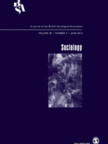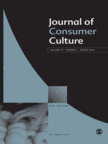
















Dr Jessica Paddock
Jess joined the SCI as Research Associate in October 2014 from the Sustainable Places Research Institute (PLACE), Cardiff University. At SCI, Jess will primarily work on the replication of the study ‘Eating Out: Social Differentiation, Consumption and Pleasure’ as first published in 2000. This was the report of the first extended empirical sociological research project on the subject of eating out from the point of view of the experiences of diners. Using a survey in three English cities and some face-to-face interviews the research explored what and where people ate, when, with whom as part of a process of understanding the social significance of this new and expanding practice. By understanding any changes and continuities in patterns of eating out since then, we hope to gather insights as to how systems of food provision may be re-configured to be more sustainable.
Further research interests lie with exploring the links between natural resource use, inequalities, cultural differentiation and food security through interdisciplinary social-natural scientific research. This work has previously included a team project funded by DEFRA’s Darwin Initiative, which aimed to understand the role of seagrass conservation for boosting food security across a small island archipelago in the British West Indies – the Turks and Caicos Islands (TCI). Here, working within the context of environmental changes that affect the islands’ once abundant fisheries, research with diverse community groups explored a third and often neglected pillar of food security; the appropriateness of food available in such a changing environment, and not simply affordability and access to sufficient nutrition. Such appreciation of change and continuity in food preferences and practice underpins the process of identifying governance strategies that can help conservation efforts and thus deal more effectively with the relationships between ecosystem services and the food system.
Previous work with the Climate Change Consortium of Wales at Cardiff University explored routines surrounding household food provision and consumption in order to better inform policies aimed at inculcating more sustainable ways of life. This research followed on from Jess's ESRC funded PhD completed in March 2012, which involved the study of an alternative food network in Wales ‘Class, Food, Culture: Exploring ‘Alternative Food Consumption’. Here, Jess considered the role of class culture in mediating the practice of alternative food consumption, finding that alternative food played a part in marking boundaries of distinction between ‘ us’ and ‘them’. The thesis argues that in reproducing certain ideas about proper eating, we confine our imagining of alternative food futures to a limited politics of the possible, thus constraining future development of more equitable alternatives to conventional foodways.
Selected Publications
Paddock, J. ‘Invoking Simplicity: ‘Alternative’ Food and the Reinvention of Distinction’, Sociologia Ruralis, In Press DOI: 10.1111/soru.12056.
Baker, S. Paddock, J., Smith,A ., Unsworth, R., Hertler, H. and Cullen-Unsworth, C. (2014) An Ecosystems Perspective for Food Security in the Caribbean: Seagrass Meadows in the Turks and Caicos Islands (TCI), Ecosystem Services, In press DOI: 0.1016/j.ecoser.2014.07.011.
Cullen-Unsworth, L., Nordlund, L., Paddock, J., Baker, S., McKenzie, L and Unsworth, R. (2014) Seagrass Meadows Globally as a Coupled Social- Ecological System: Implications for Human Wellbeing, Marine Pollution Bulletin, 83 (2) pp. 387-397 DOI 0.1016/j.marpolbul.2013.06.001
Paddock, J. (2012) Marking the Boundaries: Position Taking in a Field of ‘Alternative’ Food Consumption in A. Viljoen and J.S.C. Wiskerke (Eds.) Sustainable Food Planning: Evolving Theory and Practice, Wageningen Academic Publishers.
Email: jessica.paddock@manchester.ac.uk
Tel: +44 (0)161 306 1213


